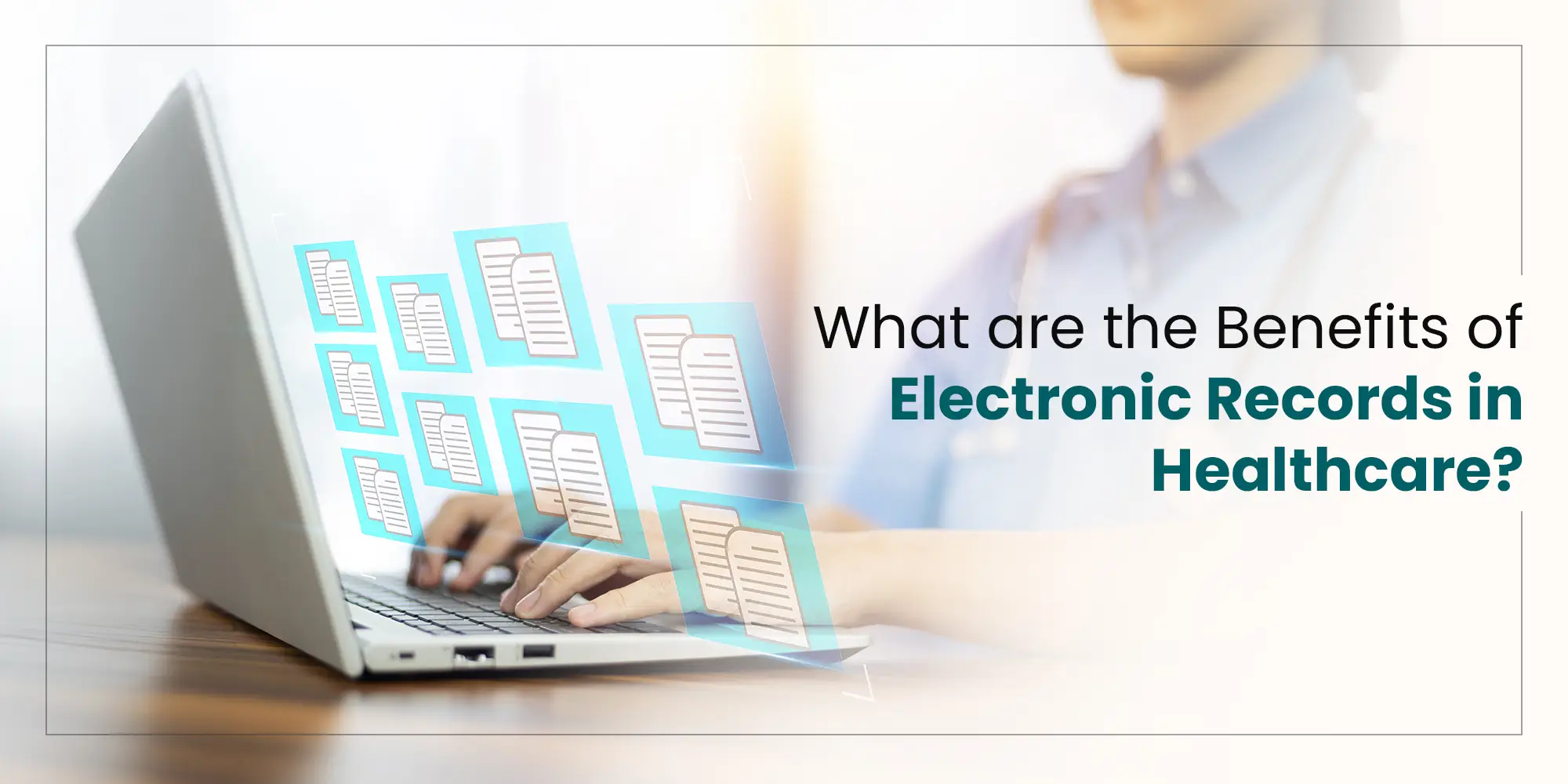Our modern society is all digitalised. Latest digital technologies like artificial intelligence, social media, digital twins, GPS, have improved our way of living and work. The 20th century marks the digital revolution and digital transformation in various industries. Healthcare industry too has witnessed use of digital technologies, in the form of electronic health records!
Let’s learn more about electronic records in healthcare and the reasons behind them being in trend.
What are electronic records in healthcare?
Electronic records in healthcare are digital or electronic form of medical records of patients. These records are all inclusive in terms of information related to patient’s personal and family medical history, diagnoses/laboratory test reports, prescribed medications, immunizations, any allergies, and treatments undertaken.
Why electronic health records are currently in trend?
Authorised healthcare providers and medical staff across various healthcare organisations can have quick and secure access to comprehensive electronic medical records of patient. They can utilise the records to enhance patients care and ensure more holistic, well-informed, personalised approach to treat patients’ illnesses with minimal medical errors.
The trend of electronic health records is because of the following perks it offers:
Reduced errors in medical data entry and better accuracy
There is automated entry, a systematic recording of patient’s medical information in standardised formats within electronic health records. This contributes to better data quality, integrity, analysis, and reporting. Furthermore, EHR systems have automated validation checks that can be used to check for any missing or misleading critical patient information and timely get them corrected, thereby safeguarding the accuracy of patient’s medical data and supporting research initiatives and
Patient’s comprehensive medical information
Electronic health records consolidate all the critical medical information of the patient to facilitate effective communication and collaboration like:
- Easy retrieval of patient’s medical data
- Improved patient care
- Allowed unified view to patient’s medical data
- Patient engagement and empowerment
- Electronic medical prescription providing enhanced safety and efficacy of medication
Some current electronic health record trends are wearables like smartwatches and Fitbits that captures health data generated by the patient; robotic process automation; and Blockchain.
Enhanced Communication Among Healthcare Providers
EHRs facilitate seamless communication among various healthcare providers by allowing authorized access to a patient’s medical history. This coordination helps ensure that all medical professionals involved in a patient’s care are informed, improving treatment outcomes and reducing the risk of duplicated or conflicting treatments.
Data Security and Privacy
EHR systems come with built-in security measures, such as encryption and access controls, which help protect sensitive patient data from unauthorized access. Compliance with regulations like HIPAA (Health Insurance Portability and Accountability Act) further ensures that patient privacy is maintained.
Streamlined Workflow and Administrative Efficiency
By digitizing records, EHRs reduce the time spent on paperwork and manual record-keeping. This allows healthcare providers to focus more on patient care, improving overall workflow and reducing administrative burdens in medical facilities.
Support for Telemedicine and Remote Care
EHRs enable healthcare providers to access patient records during telemedicine appointments, supporting the growing trend of remote care. This helps ensure continuity of care, as comprehensive patient information is readily available even during virtual consultations.

